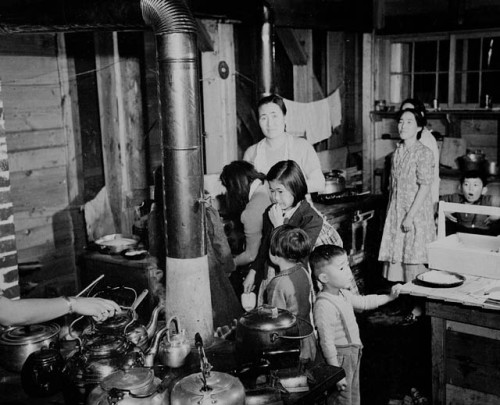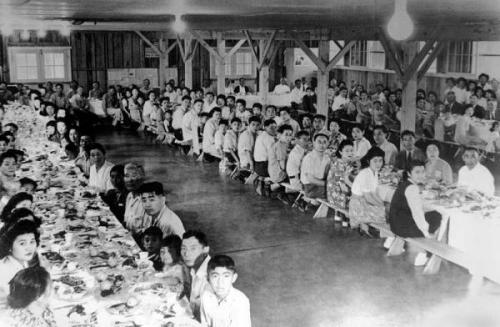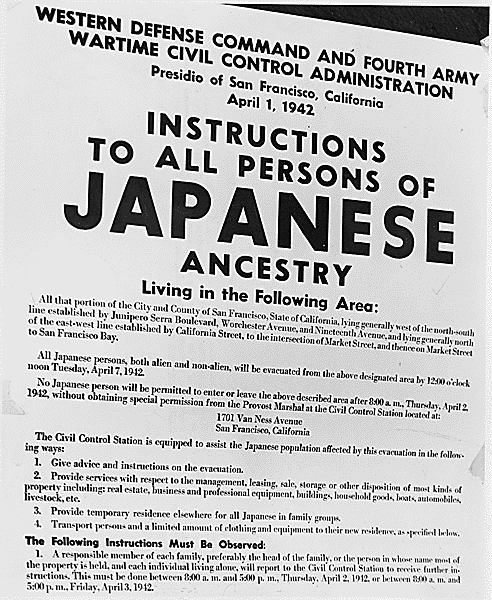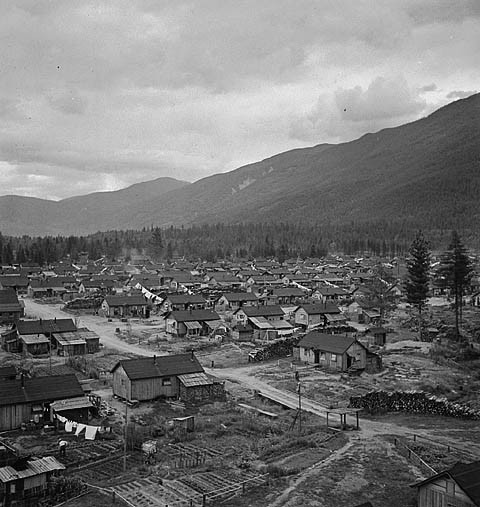peashooter85:Japanese Internment in Canada during World War II.I had always known about Japanese int
peashooter85:Japanese Internment in Canada during World War II.I had always known about Japanese internment in the United States, having studied World War II as a child and having taught lessons on it when I was a teacher. Today it’s a topic that’s becoming more and more common in the popular consciousness of America. However a topic I recently learned about is quite surprising, something I had never known before. Canada also interned people of Japanese ancestry during World War II.The road to Japanese internment in Canada began only one day after the attack on Pearl Harbor. On December 8th, 1941 the Canadian government ordered the impounding of 1200 Japanese Canadian owned fishing vessels, a move that was seen as a defense measure. From here a number of measures were passed which served as stepping stones to internment. On December 17th, 1941 all persons of Japanese descent were required to register with the Royal Canadian Mounted Police. On the 29th of February, 1942 the Defense of Canada Regulations were amended to forbid Japanese Canadians from owning land or growing crops. On the 26th of February, curfews were instituted, and Japanese Canadians were forbidden from owning motor vehicles, cameras, radios, firearms, ammunition, and explosives. Finally, on March 4th, the War Measures Act was amended to evacuate Japanese Canadians from the Pacific Coast. Altogether around 27,000 people, 14,000 of which were native born Canadians and some of which were veterans of World War I, were forcibly removed from the Pacific Coast. Most were interred in hastily built camps in the interior of British Columbia. Around 2,000 were forced to work in road camps, basically mobile camps that performed maintenance on roads, railways, or other transportation infrastructure. Another 2,000 were forced to work on beet farms in the prairies. All property that couldn’t be carried was seized and sold off for pennies on the dollar. This included land, houses, businesses, boats, vehicles, various valuables and personal items. Financial items were also seized such as stocks and bonds, while bank accounts were frozen and seized. The money raised by liquidating seized property was used to fund the internment program. Living conditions in the camps were rough. Many of the camps consisted of hastily built shacks and shanties,some were tent cities, some were ghost towns left over from long abandoned logging operations, while some were nothing more than farm buildings and animal stalls. The only item the government provided for internees was a potbellied stove. Everything else, including food, clothing, and toiletries had to be bought from special government commissaries. Since the internees had all of their property and assets seized, they often had no choice but to take part in menial work projects in order to feed and clothe themselves and their families. The Red Cross even had to bring in food shipments so that those who couldn’t work, such as the elderly or infirm, wouldn’t starve.The war ended with Japan’s official surrender on September 2nd, 1945. However, newly freed internees found that they couldn’t return home. In August of 1944 Prime Minister Mackenzie King announced that Japanese Canadians who were to be repatriated after the war were forbidden from living west of the Rocky Mountains. This was actually a part of government policy to resettle Japanese Canadians, and drew popular support from Canadian voters. Parliamentarian Ian Mackenzie stated,“It is the government’s plan to get these people out of B.C. as fast as possible. It is my personal intention, as long as I remain in public life, to see they never come back here. Let our slogan be for British Columbia: ‘No Japs from the Rockies to the seas.’” Newly freed internees found that they were legally forbidden from returning home but had to move east to new homes in eastern part of the country. Some refused to move east and were deported as a result. Most internees were unable to move east, having no money, means of transportation, or personal possessions, and likewise were forcibly deported. Altogether 3,964 Japanese Canadians were deported after the war. Even the 200 Japanese Canadians who served in the Canadian Army during World War II returned to find that they had no rights, could not return home, and risked deportation. The policy of forbidding Japanese Canadians west of the Rockies remained in place until 1949.In 1988 Prime Minister Brian Mulroney made an official apology for the internment program. All Japanese Canadians affected were awarded a $21,000 compensation package. -- source link



